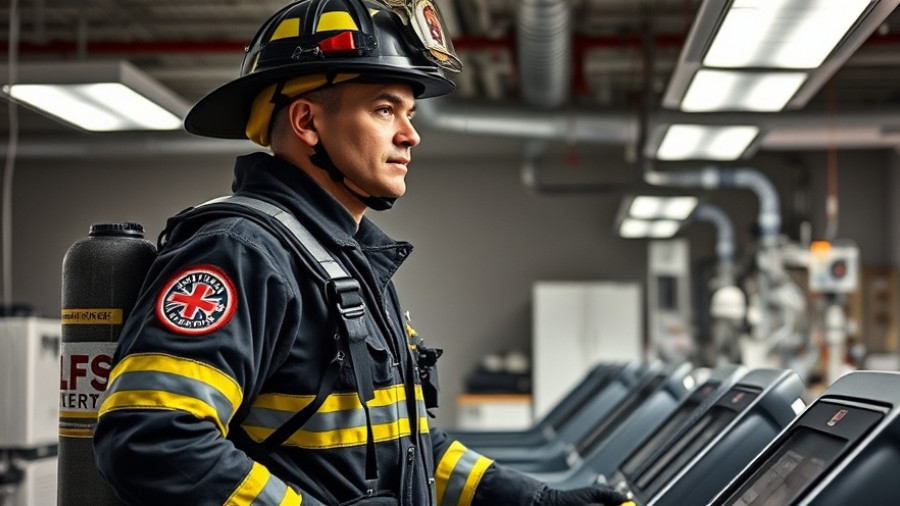
Impact of Cold Weather on Firefighter Performance
Recent research from the University of Chichester reveals alarming effects that frigid temperatures have on firefighters’ cognitive and physical abilities. Studying participants performing simulated search and rescue tasks at temperatures plunging to minus 10 °C, researchers observed a notable degradation in decision-making capabilities, memory, and motor function. This is particularly pertinent as many search and rescue operations occur in cold climates, where higher efficiency and accuracy can be the difference between life and death.
The Science Behind Cold Stress
In their environmental chamber, researchers found that at minus 10 °C, response times slowed by 9%, spatial recall dropped by 35%, and grip strength diminished by 12%. These findings suggest that cognitive efficiency can decline significantly before visible performance drops occur. Marcus Peach, one of the study's lead researchers, highlights the need for more studies on this subject given that much previous research has focused on the effects of heat on firefighters.
Understanding Cognitive Decline
The study's results indicated that, while physiological responses like heart rate and core temperature remained consistent, the mental workload for participants increased by 23%. This change in cognitive engagement adds an element of risk in urgent scenarios where quick thinking is crucial, particularly in leadership roles where recall and decision-making are vital under stress.
Real-World Implications for the Fire Service
Considering the grim implications of cold-induced cognitive deficits, it’s vital for firefighters to understand how to adapt and respond during emergencies in colder climates. The research suggests redesigning task sequences to prioritize dexterity-reliant activities earlier in missions or relocating them to sheltered areas to mitigate cold stress. Recognizing the potential for cognitive decline in colder conditions can enhance safety protocols.
Environmental and Operational Adaptations
The research underscores the necessity of integrating perceptual monitoring tools, like thermal comfort scales and mental effort evaluations, alongside traditional physiological metrics when planning deployments. Such tools can help organizations better prepare firefighters for the mental challenges posed by cold-weather missions.
Rising Need for Research in Cold-Weather Firefighter Performance
With the dual forces of climate change and the increasing likelihood of severe weather conditions, understanding how environmental factors affect firefighter performance becomes increasingly urgent. The study by the University of Chichester lays the groundwork for a more nuanced examination of both cognitive and physical parameters involved in firefighting, especially in cold climates.
Conclusions and Next Steps
The findings from this research represent the first steps toward a broader understanding of how environmental factors like temperature can affect not only the performance of firefighters but potentially all first responders. By fostering interdisciplinary collaboration, the hope is to explore the interplay between cognitive and physiological factors more fully, leading to improvements in training and operational readiness across various emergency services.
 Add Element
Add Element  Add Row
Add Row 




Write A Comment